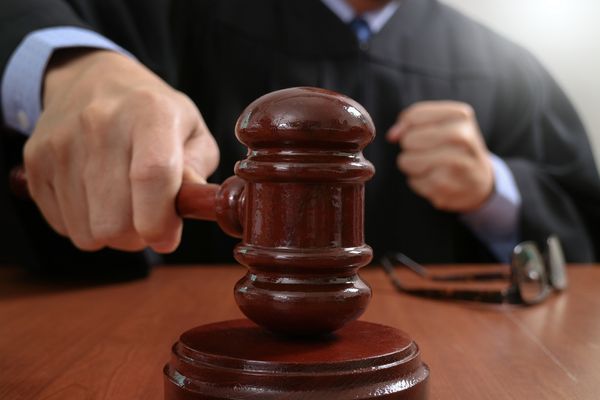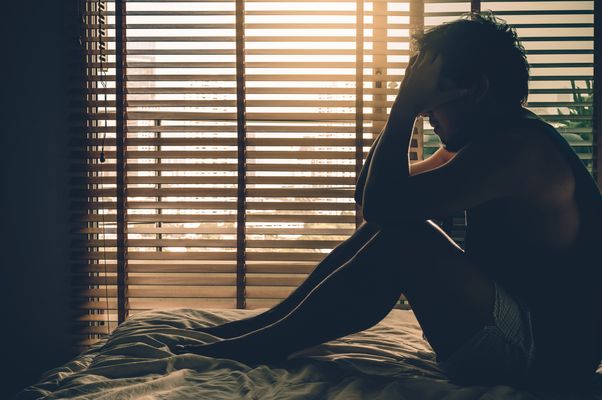5.2.4
Chapters 7-9
Chapter 7
Chapter 7
Victor receives a letter from his father with very grave news. The news means he has to return to Geneva to see his family.


William's murder
William's murder
- Alphonse's letter informs Victor that William has been strangled to death and that the locket he wore containing a picture of his mother had gone missing.
- Victor’s father urges him to return home, which he does, though he waits for two days in Lausanne, unable to face what lies at home, being moved by the sublime beauty of Mont Blanc.


Thunderstorm
Thunderstorm
- Outside the gates of Geneva, Victor sees a storm.
- In a flash of lightning, Victor thinks he sees his creation.
- Victor becomes convinced that the Monster is responsible for murdering William.


Justine's accusal
Justine's accusal
- When Victor returns home, he finds that Justine has been accused of William's murder. The missing locket was found on Justine,
- Victor is convinced that Justine is innocent but keeps quiet as he fears he will look insane.


Changing sympathies
Changing sympathies
- In this chapter, the reader begins to lose sympathy for Victor, who dwells only on his own suffering and self-pity.
- Shelley's more sympathetic presentation of Justine and Elizabeth encourages the reader to side with them instead.
Chapters 8 and 9
Chapters 8 and 9
Justine's trial goes ahead. Victor leaves filled with guilt and self-pity.


Victor's silence in court
Victor's silence in court
- Justine’s trial takes place and all the family attend.
- Victor convinces himself that he cannot tell the truth about the Monster as he was away when the murder took place and is worried people may view him as insane.
- He is anxious, upset and frantic.


Justine's composure
Justine's composure
- In contrast, Justine is admirable in her situation.
- She is calm, collected and doesn't want to cry to upset the rest of the family.
- In court, Justine gives her version of events, pleading not guilty and even Elizabeth makes a rousing defence to convince the court of Justine’s innocence.


Justine is condemned
Justine is condemned
- Neither woman’s words are powerful enough to convince the court though, and Victor rushes outside in "agony", unable to hear the verdict.
- The next day he finds out that Justine was found guilty and is condemned to death by hanging.
- He also hears that Justine, after the trial, admitted to the murder and was confused, relaying this information to a very distressed Elizabeth.


Aftermath
Aftermath
- Before being executed, Justine told Elizabeth that she only pleaded guilty because she feared that she would go to hell if she died having been found guilty of murder, but not having admitted it.
- She believed that by owning up to the murder (even though it was false) she had more chance of salvation and redemption after death.
- Victor feels enormous guilt for his part to play in the death of Justine and of William.


Victor's "agony"
Victor's "agony"
- Victor "rushed out of the court in agony" before the verdict, saying Justine's "tortures did not equal mine".
- This shows how Victor is still viewing himself as the victim, unable to face full responsibility for his actions.
- His dismissive attitude of Justine’s feelings displays the treatment of women in the patriarchal society of the 18th/19th centuries.
1Narrative Structure
2Character Summaries
2.1Walton & Frankenstein
2.3Elizabeth, Justine & Henry
3Intertextuality & Allusions
3.1Intertextual References
3.2Philosophical & Scientific Theories
4Biographic Context
5Chapter Summaries
5.2Chapters
5.2.1Chapters 1-2
5.2.2Chapters 3-4
5.2.3Chapters 5-6
5.2.4Chapters 7-9
5.2.5Chapters 10-11
5.2.6Chapters 12-15
5.2.7Chapters 16-19
5.2.8Chapters 20-23
5.2.9Chapter 24 & Walton’s Last Letters
5.2.10End of Topic Test - Chapters 1-6
5.2.11End of Topic Test - Chapters 7-15
5.2.12End of Topic Test - Chapters 16-23
5.2.13End of Topic Test - Chapter 24 & Walton's Letters
6Key Themes
7Recap: Main Quotes
7.1Characters Quotes
7.1.1Walton - Quotations
7.1.2Victor Frankenstein - Quotations
7.1.3The Monster - Quotations
7.1.4The Educational Texts - Quotations
7.1.5Elizabeth Lavenza - Quotations
7.1.6Justine Moritz - Quotations
7.1.7Henry Clerval - Quotations
7.1.8Alphonse Frankenstein - Quotations
7.1.9The De Lacey Family - Quotations
Jump to other topics
1Narrative Structure
2Character Summaries
2.1Walton & Frankenstein
2.3Elizabeth, Justine & Henry
3Intertextuality & Allusions
3.1Intertextual References
3.2Philosophical & Scientific Theories
4Biographic Context
5Chapter Summaries
5.2Chapters
5.2.1Chapters 1-2
5.2.2Chapters 3-4
5.2.3Chapters 5-6
5.2.4Chapters 7-9
5.2.5Chapters 10-11
5.2.6Chapters 12-15
5.2.7Chapters 16-19
5.2.8Chapters 20-23
5.2.9Chapter 24 & Walton’s Last Letters
5.2.10End of Topic Test - Chapters 1-6
5.2.11End of Topic Test - Chapters 7-15
5.2.12End of Topic Test - Chapters 16-23
5.2.13End of Topic Test - Chapter 24 & Walton's Letters
6Key Themes
7Recap: Main Quotes
7.1Characters Quotes
7.1.1Walton - Quotations
7.1.2Victor Frankenstein - Quotations
7.1.3The Monster - Quotations
7.1.4The Educational Texts - Quotations
7.1.5Elizabeth Lavenza - Quotations
7.1.6Justine Moritz - Quotations
7.1.7Henry Clerval - Quotations
7.1.8Alphonse Frankenstein - Quotations
7.1.9The De Lacey Family - Quotations
Unlock your full potential with Seneca Premium
Unlimited access to 10,000+ open-ended exam questions
Mini-mock exams based on your study history
Unlock 800+ premium courses & e-books